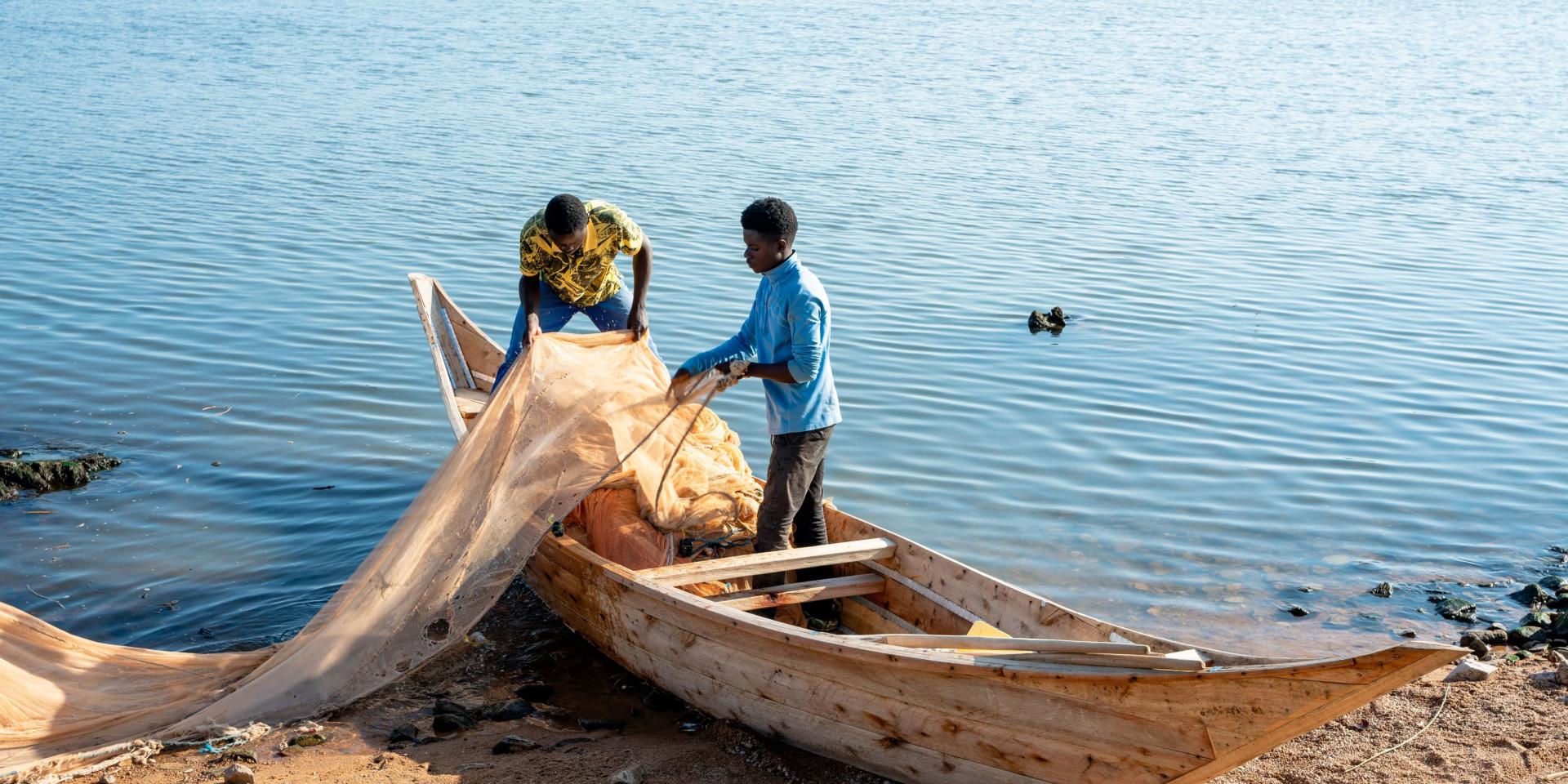Applying a gender lens on the impacts of climate change on fisher communities in Kenya’s Lake Victoria Zone Region
 Photo: Lightbulb Studios Africa/WorldFish
Photo: Lightbulb Studios Africa/WorldFish
HIGHLIGHTS
- Lake Victoria’s fisheries contribute enormously to community livelihoods in terms of food, nutrition and income. Understanding gender relations is crucial for shaping a gender-equal community.
- The Lake Victoria fisheries has undergone some of the most intense ecological disturbances ever seen in a big freshwater ecosystem, attributed to both climatic and non-climatic pressures. The meteorological data (1981-2022) demonstrated a significant upward trend for minimum and maximum temperatures and rainfall. The findings concur with the men and women’s perceptions of the noted data.
- The changes have caused a decline in fish stocks, destruction of infrastructure, conflicts, the occurrence of human diseases, and reduced incomes leading to increased poverty levels. High household’s vulnerability.
- Interventions to increase adaptation and resilience to climate change in the fisheries value chain: 10 women and youth self-help groups were able to acquire solar freezers, solar tent driers, fish smoking kilns and fish display boxes.
Lake Victoria, the world’s second-largest freshwater lake and the largest in the tropics, is bordered by Kenya, Tanzania and Uganda. While generally rural, the lake’s long shoreline is dotted with key cities and towns, including Bukoba, in Tanzania, Jinja in Uganda, and Homa Bay, Kisumu, and Migori in Kenya. This makes it a densely populated area with a large fisheries catchment area.
In Kenya’s Lake Victoria region, lake fisheries contribute enormously to livelihoods in terms of food, nutrition and income. However, the devastating effects of climate change are causing intense ecological disturbances across this large freshwater ecosystem.
Small-scale fishers and related supply chain actors who are highly dependent on lake resources for their livelihoods, are particularly susceptible to the impacts of climate change. Investigating how climatic variability and change can affect these communities—many of whom are also working wives, mothers, and youth—may help to identify and implement solutions for action to tackle climate change in the lake zone region.